Literatura
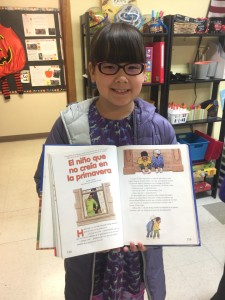
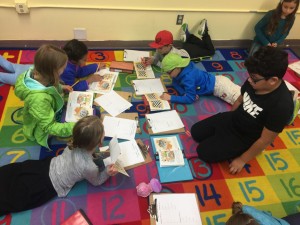 This week we read El niño que no creía en la primavera. Our objectives were:
This week we read El niño que no creía en la primavera. Our objectives were:
- Have students practice comprehension by playing Halloween “Guess Who?”
- understand adverbs that describe time/order, dialog dashes, and adjectives
- to use comprehension strategies such as Asking Questions, Clarifying, Visualizing, and Predicting to construct meaning from the story
- to understand the definition of our new vocabulary in order to better prepare for the spelling test next week
We also worked together on our reader homework this week in class. Monday they will be receiving their new reader homework as normal.
Matemáticas
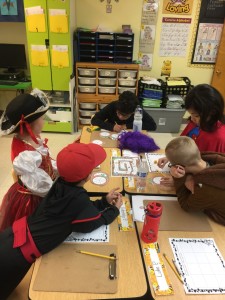
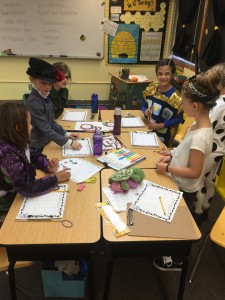
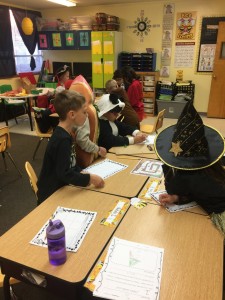 This week we began learning about the Multiplication Tables of 6,7,8 and 9. Our objectives were:
This week we began learning about the Multiplication Tables of 6,7,8 and 9. Our objectives were:
- Students will practice 4-digit addition and subtraction by playing a Halloween math game
- Use multiplication properties by modeling multiplication on number lines and dot paper, and understanding the commutative property, multiplying by 1, and multiplying by 0
Next week we will begin practicing our multiplication facts at the beginning of each class by taking fast facts quizzes. Students will try to complete each quiz within 4 minutes and with 100% accuracy. Once they have passed a quiz they will move on to the next set of multiplication facts working up to x12. If the student does not pass they will retake that quiz until they are able to pass.
History & Geography
Social studies with Ms. Marci.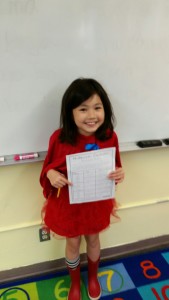
This week we learned about the Punic Wars and some information about the daily Roman life in the city. We also had fun working on our Roman wax writing tablets.
Our objectives were to:
• identify and locate on a map the following : Mediterranean Sea, Italy, Sicily, North Africa, Carthage, Spain, and the Alps.
• explain the significance of the Punic Wars between ancient Rome and Carthage
• describe the role of Hannibal in the Punic Wars
• describe the everyday life the ancient Romans
• describe the many structures the ancient Romans built, including roads, bridges, aqueduct, and amphitheaters
• Identify some of the contributions from the ancient Roman civilization, and describe how they have influenced the present
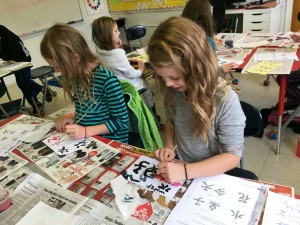 Social Studies with Ms. Laura:
Social Studies with Ms. Laura:
We explored the importance of ancestors in Chinese beliefs and tried to understand ways that ancestor worship has been practiced. We wrote letters to a special someone! We talk about the Great Wall of China and read the book The Seven Chinese Brothers. We talked about the Chinese Language and writing. We talked about the importance of written language to a civilization, comparing Ancient China to Ancient India. We practiced some Chinese calligraphy.
Science 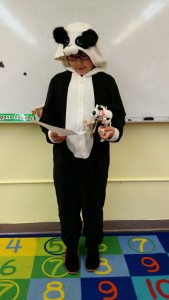
This week we finished our classification of animals domain and read about vertebrate animals around the world. We continue to work on our informational paragraph about an animal of our choosing. Students will be creating their animal, in some form of their choosing, at home next week.
Our objectives this week were to:
• identify cold-blooded or warm-blooded and vertebrate / invertebrate as important characteristics used to classify animals
• identify fish, amphibians, reptiles, birds, and mammals as groups of vertebrates
• identify basic characteristics of fish, amphibians, birds, and mammals
• close-by particular animals as fish, amphibians, reptiles, birds, or mammals
• compare and contrast two groups of vertebrates
• identify insect as in invertebrates
• identify insect has the most numerous group of animals that have currently been identified
English Word Work 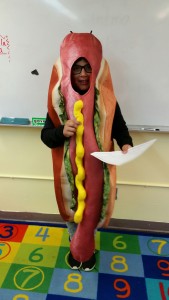
We took our spelling test on Friday. For grammar we reviewed proper ways to punctuate quotes in sentences. For giggles, we used Halloween costumes to identify possible character traits and then shared them with the class.
In our journals we used this week’s vocabulary word, “attire” to describe our Halloween outfits.
